
Transitions Online_Around the Bloc-8 July
Highlights from our coverage region: commemorations for Srebrenica; Chechen exiles antsy after killing; curfew protests in Belgrade; alleged MP kidnapping in Moldova; plague in Mongolia.
More...We kindly inform you that, as long as the subject affiliation of our 300.000+ articles is in progress, you might get unsufficient or no results on your third level or second level search. In this case, please broaden your search criteria.

Highlights from our coverage region: commemorations for Srebrenica; Chechen exiles antsy after killing; curfew protests in Belgrade; alleged MP kidnapping in Moldova; plague in Mongolia.
More...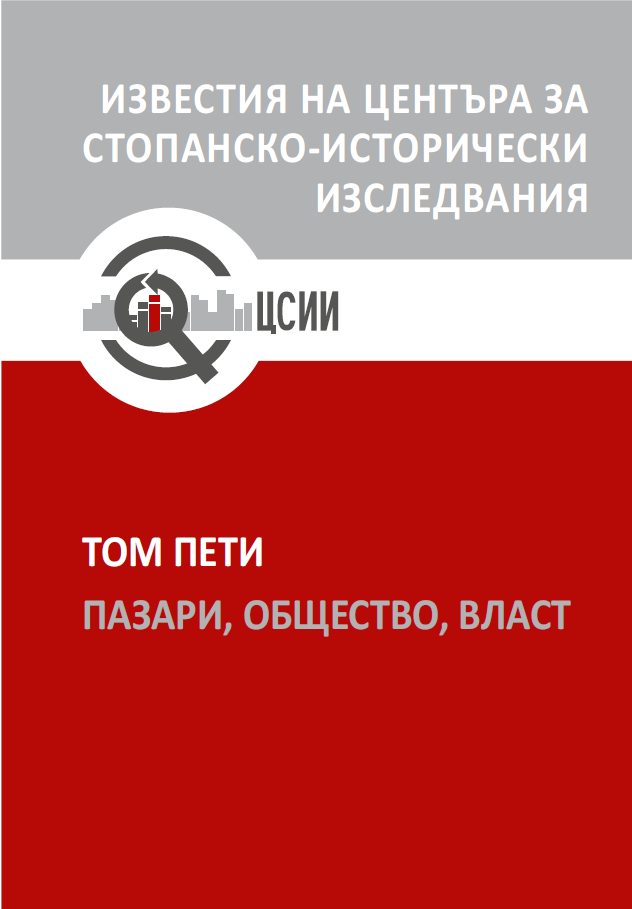
The paper explores the role of intermediaries and market microstructures in Black Sea Grain Trade through the example of the case of Varna and the wider region of the Bulgarian Black Sea coast. It focuses particularly on the transition from the late Ottoman, largely unregulated, regional grain markets to the period of autonomous Bulgaria (1878-1908), when international and domestic, economic and social pressures invited the Bulgarian authorities to intervene in local economies and try to regulate the grain markets and the sales of grain from the hinterland to the port-cities. The case of Varna shows that these efforts for institutional change corresponded to – and were largely provoked in the framework of – struggles for control of the processes of agricultural surplus extraction in the hinterland of the port outlets, struggles, which had a discernible ethnic dimension.
More...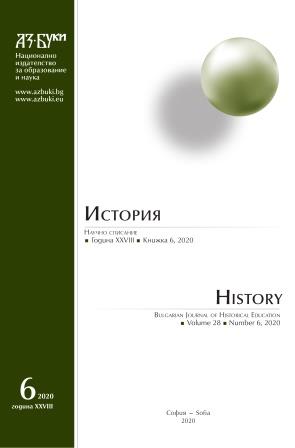
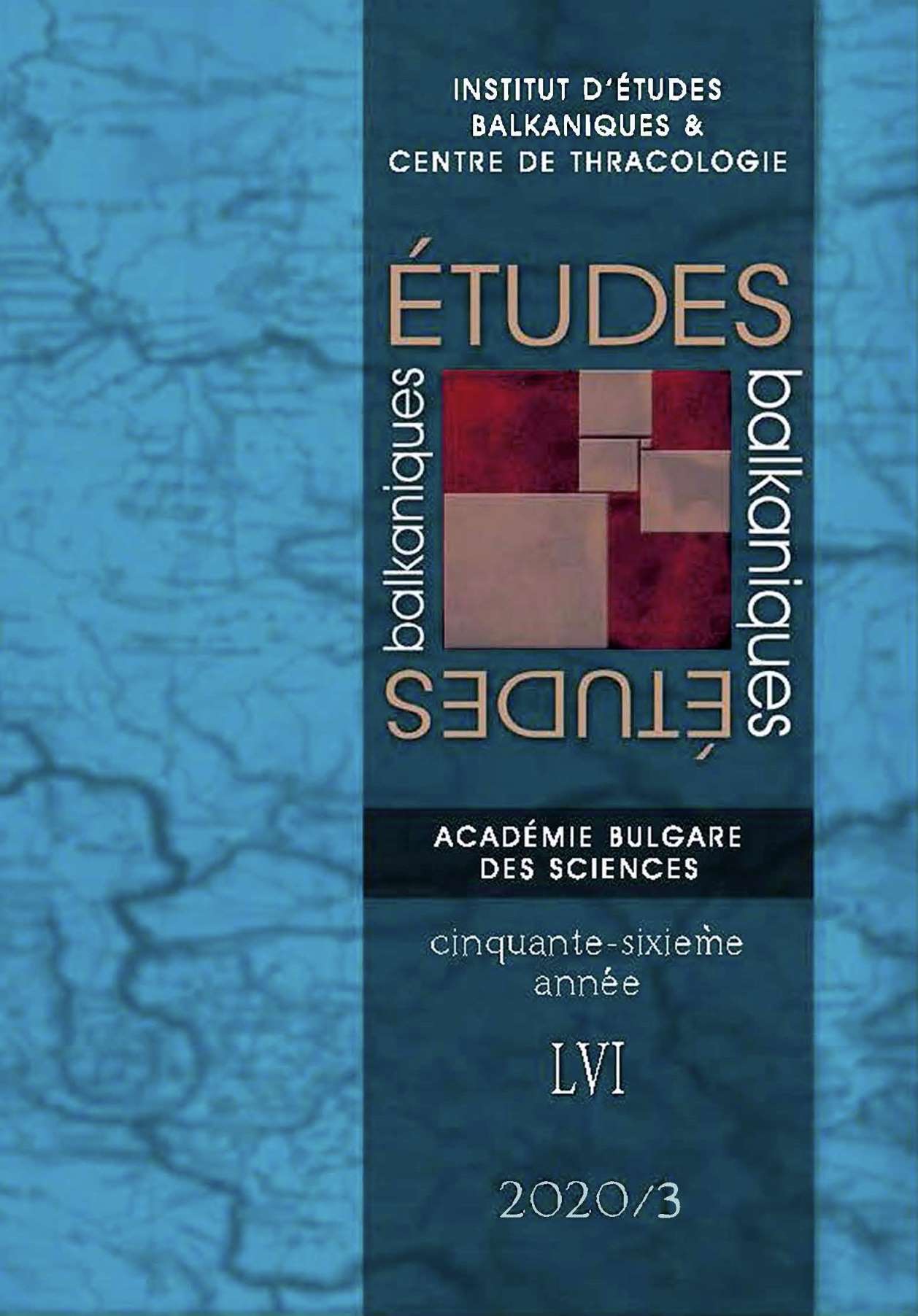
The fate of the representatives of these two categories of population in three towns of today’s Bulgaria (Plovdiv, Sofia and Vratsa) is followed in the article on the basis of several unpublished Ottoman registers of voynuks and falconers from the Central Balkans from the 16th century. Their social and economic status, as well as their service lands, and their ethnoreligious and organizational structure are examined. As far as the source basis allows it, an attempt was made to show the reflection of the urban life on the livelihood and the way of living of these Christians. Although voynuks and falconers were predominantly rural population, permanently bound to agriculture through their service lands (bashtinas), in the 16th century we also find their presence in the towns of the Central Balkans and, in particular, in the Bulgarian lands. Some of the voynuks and falconers had actually been residents of the towns for a long time. But data from the registers shows that most of these people were in fact migrants from villages in the region around large towns which were directly linked to town markets. Very often the service lands of voynuks and falconers were still in one of the nearby villages, although their owners had permanently settled in towns. It is possible that those voynuks and falconers, who had long lived in towns, also had rural descent. As the voynuks and falconers who settled in towns were predominantly Orthodox Bulgarians, their settlement was around the roads on which towns were gradually becoming Bulgarian or the numbers of the Bulgarian Orthodox community was kept constant. Voynuks and falconers who permanently settled in towns adapted to the town’s trade and artisanal lifestyle. This is proved by the fact that sometimes their service bashtinas included their trade and craft shops and only a few vineyards, orchard and vegetable gardens in the complete absence of arable lands ( fields). This shows that they relied entirely on craftsmanship, trade and the markets of large towns to provide for their families.
More...
The most influential Protestant society which operated in the Ottoman Empire was the American Board of Commissioners for Foreign Missions. Its mission station in Monastir (Bitola) was active from 1873 to 1920. There were several aspects of the Protestant activities in the town: evangelistic, educational, literary, medical and relief work. The mission was oriented predominantly towards the Bulgarian population. In addition, the Americans attempted to widen their missionary field, the Albanians being the most responsive. The greatest achievements of the Protestant Mission in Bitola were the establishment of the American Girls’ Boarding School and the Bulgarian Evangelical Church.
More...
The text deals with the peculiarities of the funeral ceremonies for members of the ruling families from the Third Bulgarian Kingdom. After the Liberation of Bulgaria, four members of the sovereign families have been buried on the territory of the country – Prince Alexander I of Battenberg in 1893, Princess Maria Louise in 1899, Queen Eleonore in 1917 and Tsar Boris III in 1943. The establishment of a new funeral culture in the Bulgarian cities after the Liberation takes place within the framework of the collective cultural processes caused by the shift in the socioeconomic conditions. Following the untimely death of Prince Alexander I of Battenberg and the fulfillment of his death wish to be buried in Bulgaria, a norm for royal burials, which until now did not exist in the cultural traditions of Bulgarian cities, was necessary to be rapidly introduced from Europe and adapted for Bulgarian conditions. The funeral of Prince Ferdinand’s first wife, Princess Maria Louise, is the first female royal funeral. Thus, gradually, at the end of the 19th century the royal burials, along with the bestowing of posthumous honors to royalties, became an integral part of the urban culture of the Bulgarians. The representatives of the ruling families were the elite of the Bulgarian society and after their deaths they were buried particularly solemnly, with government and military honors, following planned programs in accordance with the requirements of the Palace Protocol, which were published beforehand in the press.
More...
The proposed paper is devoted to some basic concepts such as power, markets and entrepreneurs. On the basis of some explanations and theoretical clarifications, I discuss their presence and role in the economic life during the Bulgarian National Revival period (19th century). Markets are created by enterprising people or function to meet their needs. In their turn, merchants carry out their activities by means of markets. In addition to specific places (the Uzundzhovo fair, the Sliven fair, etc.) where purchases and sales are made, markets may be considered as networks through which sellers and buyers interact with each other during the mentioned period. Goods, financial resources, information and trust, which are key to maintaining business relationships, circulate in the networks. Different types and levels of power are also important. They are crucial factor in case of unfair treatment or a dispute. Sometimes they are an obstacle that hinders enterprising people and their work. The proposed conclusions can certainly be enriched with more empirical data. However, I am convinced that economic theory would help to clearly define key terms, and the empirical data can illustrate and even correct imposed perceptions.
More...
The Revival was the period of economic and cultural rise of Bulgarians, without an existence of a state. It is the result of economic freedom and spontaneous order without centralized state power. The establishment of Bulgarian state did not lead to great economic prosperity, but to the reconstruction of the free economy to centralized one. One of the erudite of Bulgarian Revival was Vladimir Svintila. In his research dedicated to mentality and folk psychology, he reveals the economic ethos of Bulgarians during this period. The purpose of this paper is to present a different point of view to economic life of the Bulgarians during the Revival period, which in our opinion is contained in the books of Vladimir Svintila. It reveals facts that popular history conceals as they are not similar to the idea of national centralized state. For the needs of the research comparative historical analyses is used along with the network approach to complex systems.
More...
The article presents the Tanzimat (the reform period)–created municipality councils and their role in the Ottoman province administrative system. The focus is on the capitals that these councils successfully accumulated and managed. The employees will be presented responsible for the cash funds in the area and the amount of money. These financial assets were used for giving loans with interest. Yet another proof that when there is strong market demand, combined with feeble supply, the normative acts are usually ignored. The research is based on the published ten volumes of Ottoman statistical yearly editions on the Danube area chronologically comprising the period from 1868/1869 to 1877/1878. Besides, several materials have been used taken from the officious newspaper Dunav (Danube). These represent the administrative framework where municipality councils are located and function. Special attention has been paid to one publication of 5th January 1872, which proves that the municipality councilors used to lend money with interest.
More...
Drawing from a large number of sources I have been able to identify 196 industrialists with relatively complete biographical data. The following bioindicators have been collected: the years (and, when possible, the dates) of birth and death, family origin (father's profession and assessment of his property), education, position in the factory, previous or parallel economic activity, participation in the revolutionary movement (in including IMRO), membership in cultural, educational or professional organizations, party membership, high administrative positions and family ties. The generalized factory sociology is presented in tabular and narrative form and along with the general picture a focus is given on the first founding fathers from the classical Grunder period between 1880 and 1899.
More...
The article presents the research papers dedicated to Bulgaria’s economic development in the 1880s selected by the Editorial Board of and published in the journal Industry printed in the town of Svishtov in the period 1887–1890. It puts an emphasis on the policy of openness and freedom adopted by the state, which,along with each individual citizen and the society as a whole are regarded the key drives for development. The paper discusses the various opinions regarding the achievements in each economic sector, the problems they face, and the causes for the slower rates of economic development. The journal regards the prosperity of the country as a function of free-market entrepreneurship and household savings as a source of capital investment rather than a return to protectionist policies and the accelerated integration of Bulgaria into the civilized world through harmonization of the relations between man and society.
More...
At the end of the 19th century, the Bulgarian party structure was established, and through the mechanisms of the constitutional system, took over the government of the country and its political and economic modernization. The Liberal Party led by Dr. Vasil Radoslavov is one of the parties governing the country. Like the other parties, it kept its focus mainly on the political and not economic sphere. In their program, the liberals concretize their practical ideas. Their views on the protection and defense of agriculture, livestock, industry, trade and the introduction of a modern tax system are in line with the latest ideas of their time and fully meet the interests of the economic change of the state and the society.
More...
The study traces the formation and development of the Church-Economic Department at the Holy Synod of the Bulgarian Orthodox Church. The newly created structure aims to organize the monastery lands into efficient farms. With this purpose, a department was created, which monitors the work of monastery forests and one, which takes care of the fruits and vineyard distribution. In order to provide material support of the newly created structure, a Church-Monastery Fund was also created, which is filled up by surpluses of the church and monastery funds. Some distinct experts were involved in the Church-Monastery Department, who help in formation of its structures and in reaching high yields and quality of the cultivating seedlings and crops. The successful development of the Church-Economic Department is hindered by the state policy. Alexander Stamboliyski’s regime brings in action the Law on Labor Land Ownership, which requires confiscation of uncultivated lands and its distribution to the needy population. The article of the law also applies to monastic lands. This policy has two irreversible consequences. One is connected to the gradual withdrawal of leading and specialized personnel out of the Church-Economic Department, and second is related to increasing the negative reaction of part of Synod elders and some abbots. The Church’s internal disagreements regarding the economic policy are caused by the centralization process and regulation of the economic activity and the exhaustion of the monastery funds, from which about 1/3are being allocated for the benefit of different church funds.
More...
This article analyzes the dynamics of an entrepreneurial activity, mine exploitation, at the end of the nineteenth century in Salonica through the economic activities of an entrepreneur, Osman Inayet and proposes an evaluation of the complex relationships he created with other entrepreneurs through mining activities. Legal transformations concerning mining activities coupled with the economic growth due to the commercial expansion especially in port-cities such as Salonica in this period paved the way for an increase in the interest in mining activities. The mining activities of Osman Inayet, one of the entrepreneurs engaged in this sector, serve to analyze the components of the economic network he formed around this activity and lead us to enrich our comprehension about the nature of economic relations in Salonica at the end of the nineteenth century. Focusing on an individual case provides a more comprehensive picture of individual choices, decisions, and experiences. Furthermore, this analysis, based on archival documents on mine concessions, provides new perspectives to our understanding of the inner mechanisms entrepreneurial activities.
More...
For the most part of the 19th century Karlovo region experienced a sharp rise in its socio-economic and demographic spheres, to end the century, after the Liberation in 1878, with a significant decline in its economic potential, and hence the demographic situation of the region. In the first half of the 19th century, the sub-Balkan settlements, led by the regional capital Karlovo, formed a popular center of proto-industrial development of the textile industry in the European part of the Ottoman Empire through a number of crafts, but mostly through braiding. For example, in the third quarter of the 19th century, there were about 2,000 braid machines in Karlovo, producing more than 339,730 kg of braid per year. Together with the neighboring villages of Sopot and Kalofer, where approx. 1700 additional braiding machines were located, the region occupied the leading position in the production of braid products in the Ottoman Empire during the 1860s and 1870s. The end of the Russo-Turkish Liberation War found the region of Karlovo in a difficult socio-economic situation. The war and the atrocities of the bashibozouks resulted in destruction and mass emigration in the main craft centers of Karlovo, Kalofer, and Sopot. The new socio-economic and geopolitical reality offered a brand new way of production and marketing of products in completely new markets, where the ordinary Bulgarian craftsman and trader had to compete with the experienced competitors and industrialists from Central and Western Europe. The newly introduced tariffs significantly increased the product’s export price, and thus the urban population in Rumelia gradually began preferring cheaper imported goods and raw materials. As a result, the main livelihood of sub-Balkan urban town centers remained the declining crafts, most notably braid production, but the local and the central government failed to help and slow the economic collapse. The other significant subsistence industry in those towns was the rose gardens and rose production, which was also widespread in the region. Apart from the few towns, the rest of over 40 villages in the region subsisted mainly on agriculture, horticulture, and cattle breeding in the years after the Liberation. In conclusion, it could be said that the transition from proto-industrial to factory production proved unsuccessful in the first decades after the Liberation, despite a few successful initiatives and productions. One of the factors for this, especially in the region of Karlovo is, among other things, also the demographic factor.
More...
This work presents the consecutive fourth part of gathered primary material on the topic of the natural trade and service payments in Bulgarian lands through the second half of 19th and the first decades of 20th centuries. I hope that the represented materials can serve for a good basis about further researches as the distant goal is to reveal the system of paying in kind in Bulgarian lands and to reconstruct the economic models from the 19th and early 20th centuries.
More...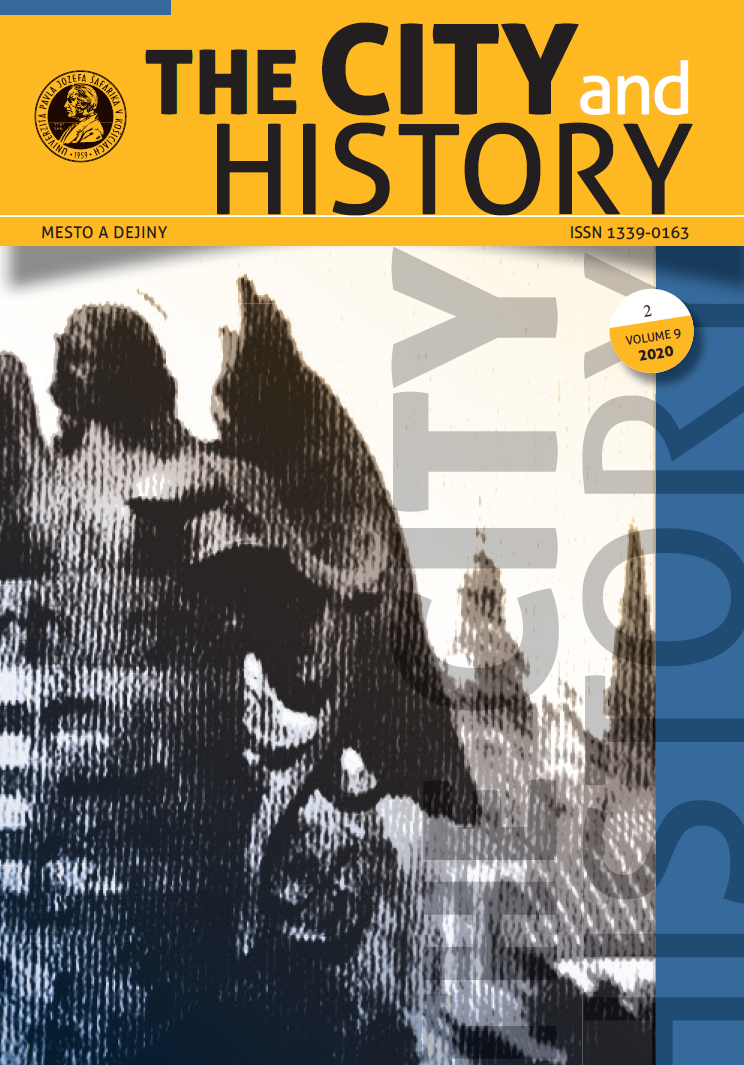
Review of: FICERI, Ondrej. Potrianonské Košice. Premeny etnických identít obyvateľov Košíc v medzivojnovom Československu [Košice Post-Trianon. Ethnic Identity Changes of Inhabitants of Košice in Interwar Czechoslovakia]. Bratislava: VEDA, Vydavateľstvo SAV, 2019, 336 pp. ISBN 978-80-224-1737-2
More...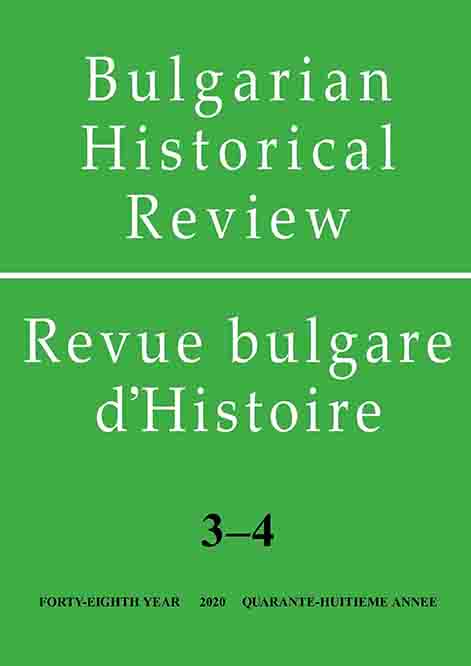
Pomaks, a Bulgarian speaking community based on a religious identity emerged as a result of Islamization process which occurred among the local Slavic people in the regions of Loveč, the Rhodope Mountains, Western Thrace and Macedonia during the Ottoman period in the 15th–18th centuries. It is stated in the literature that the term Pomak was first used in Bulgarian sources in 1812, in British sources in 1833 and in French sources in 1840 to identify Bulgarian speaking Muslims living in the Loveč region. In this study, after examining the process of Islamization, the terms used to define Pomaks, and appearing of the term in the international literature, based on some new and unused Ottoman sources I will show that the term Pomak used by the Ottomans earlier than previously assumed. According to my findings, the Pomak term was first used in Ottoman sources in the 17th century regarding statesmen that were of Pomak origin. But as a separate community Pomaks emerged for the first time in Ottoman sources during the 1806–1812 Russo-Ottoman War. State Chronicler Şanizade Mehmed Ataullah Efendi recorded that around 10–14.000 soldiers were recruited from among the Loveč Pomaks and also described them as a military element, in 1809. Besides, Ottoman documents reveal that during this war, the Pomaks ambushed and defeated the Russian troops entering the Balkan Mountains and played an active role in defending the Loveč region in general. However, Ottoman documents also indicate that some apostate Pomaks together with volunteer Bulgarians joined the Russian army and attacked to Loveč in 1811 January. The earliest record defining the Bulgarian speaking Muslims in the Rhodope Mountains as Pomaks in Ottoman sources, was dated 1833. In addition, after looking at the views about the origin and identity of the Pomaks among the Bulgarian intellectuals and western circles in the 1860s–1870s, I will also be examining the etymology of the term Pomak in view of the Ottoman sources which support the thesis that term Pomak come from the Bulgarian word pomagači (helpers).
More...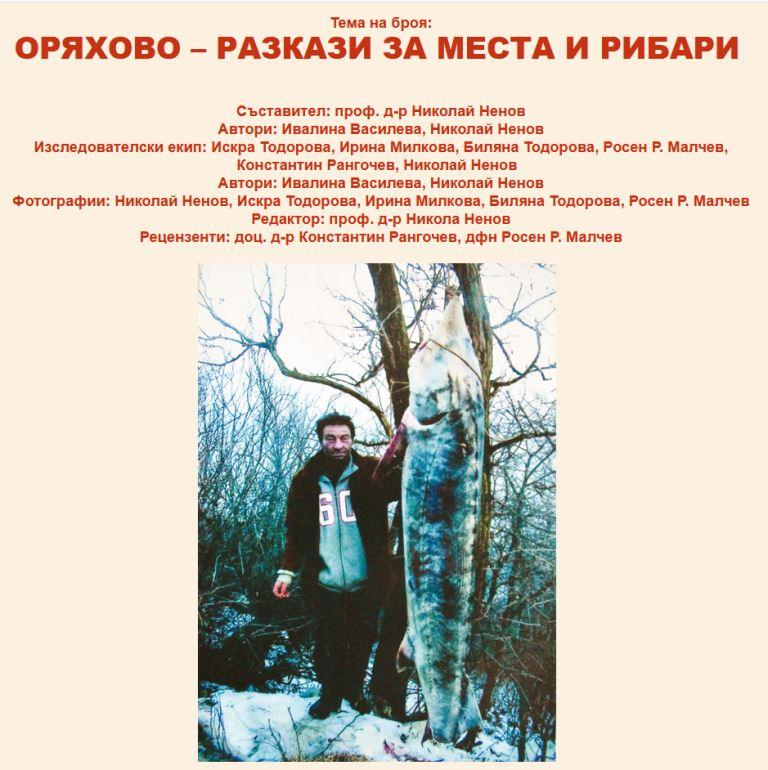
The text describes the cemeteries and tombstones in the town of Oryahovo and the nearby village of Selanovtsi. The rich plastic decoration of the traditional type of monuments has the characteristics of the Christian ritual system. In more recent times simple forms are established – plates predominate, on which various details are applied – niches for candles, vases for flowers, religious or communist signs, inscriptions, photos. According to the form and content of the tombstones, there are four time periods. The oldest are stone tombstones, which belong to the stonemakers school of the town of Vratsa and were used until the middle of the twentieth century. Simultaneously with them appear models of urban type memorial, which consists of a pedestal and a main body, a parallelepiped, crowned with a cross. Limestone or granite, applications of porcelain photographs, the appearance of sculptural figures – these differences suggest social inequalities. After the middle of the twentieth century, this type of monument was lost, with the appearance of simple slabs, cast from cement, which included the style of the communist regime in Bulgaria at that time.
More...
The purpose of the following text is to show the local variant of after funeral custom “Fii marturia”, which was realized in the village of Harletz in the region of Vratza during the second half of the twentieth and the first decade of the twenty first century. The accent is on the algorithm of the custom which was discussed in two directions – outside – the stories of the local Harletz citizens and inside – the childhood memories of the author. In this research, the geographical, culture and historical, lingual and demographic sides of this occurrence are well shown and discussed. Ethnological analysis of the Hurletz’s version of this custom can also be found in this work.
More...